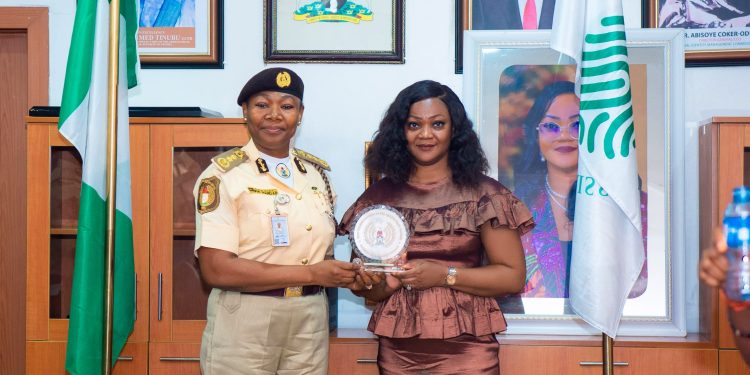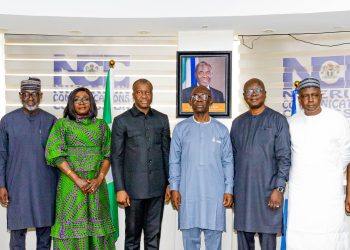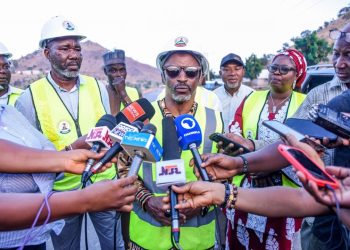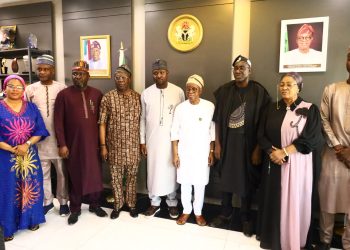By Nkechi Eze
The Comptroller General of the Nigeria Immigration Service (NIS), Kemi Nana Nandap, on Tuesday paid a courtesy visit to the Director General and Chief Executive Officer of the National Identity Management Commission (NIMC), Engr. (Dr) Abisoye Coker-Odusote, in a renewed move to strengthen inter-agency collaboration on identity management and national security. She was accompanied by members of her management team.
According to an official statement signed by the Technical Advisor, Media and Communications to the NIMC DG/CEO, Ayodele Babalola, the visit underscored the commitment of both agencies, two key institutions under the Federal Ministry of Interior to deepen their long-standing partnership in promoting national security, identity management, and enhanced service delivery to Nigerians.
Speaking during the meeting, CG Nandap emphasized the importance of continuous partnership between the NIS and NIMC, particularly in enhancing border security, strengthening identity verification systems, and supporting national development objectives. She stressed that sustained synergy between both agencies remains essential to ensuring a secure and well-managed identity ecosystem for the nation. “Our collaboration is central to safeguarding Nigeria’s borders and ensuring the integrity of the country’s identity infrastructure,” she said, reaffirming the NIS’s commitment to closer institutional engagement.
Responding, the NIMC Director General, Engr. Coker-Odusote, warmly welcomed the delegation and reaffirmed the Commission’s readiness to expand its collaboration with the Nigeria Immigration Service. She highlighted the importance of deepening existing cooperation to enhance data integrity, streamline operational processes, and fortify Nigeria’s borders through a unified, technology-driven identity management system. She noted that both agencies must continue to work hand in hand to ensure efficiency, security, and innovation in delivering services to Nigerians.
Both institutions expressed their shared commitment to driving policies and initiatives that will improve security architecture, boost operational efficiency, and advance innovation within the nation’s identity and border management frameworks. Their renewed partnership is expected to strengthen Nigeria’s identity ecosystem and support government efforts toward a more secure and digitally efficient national environment.















